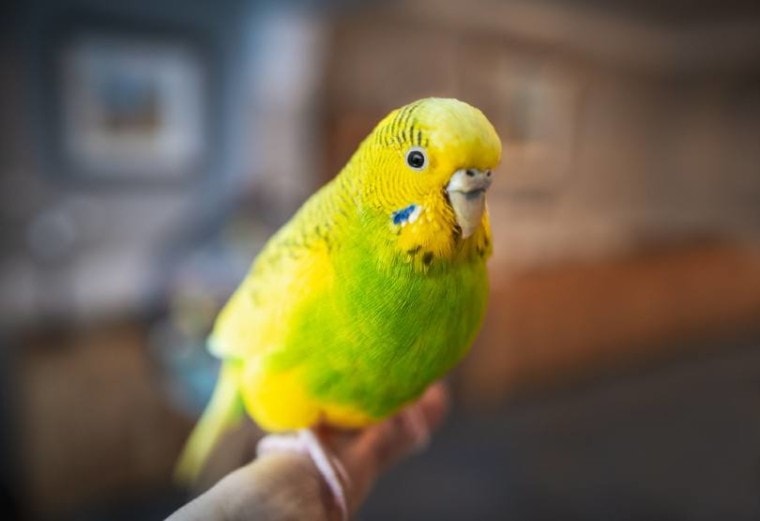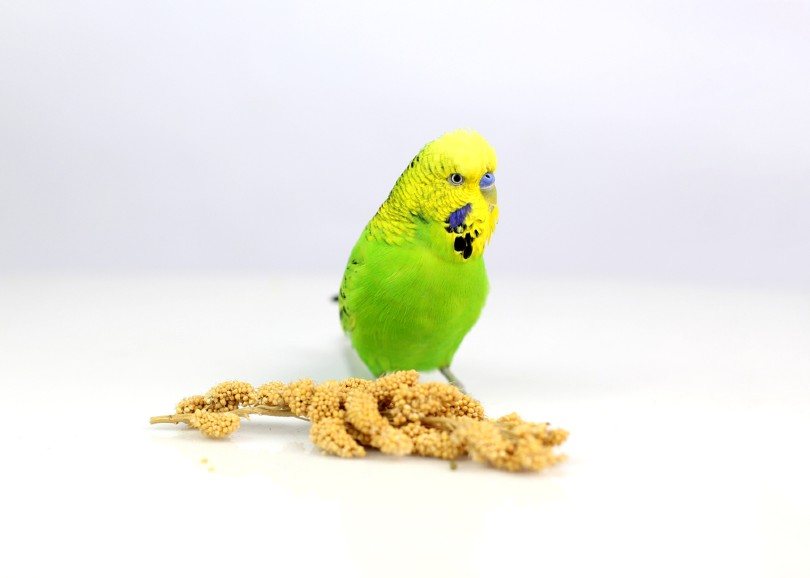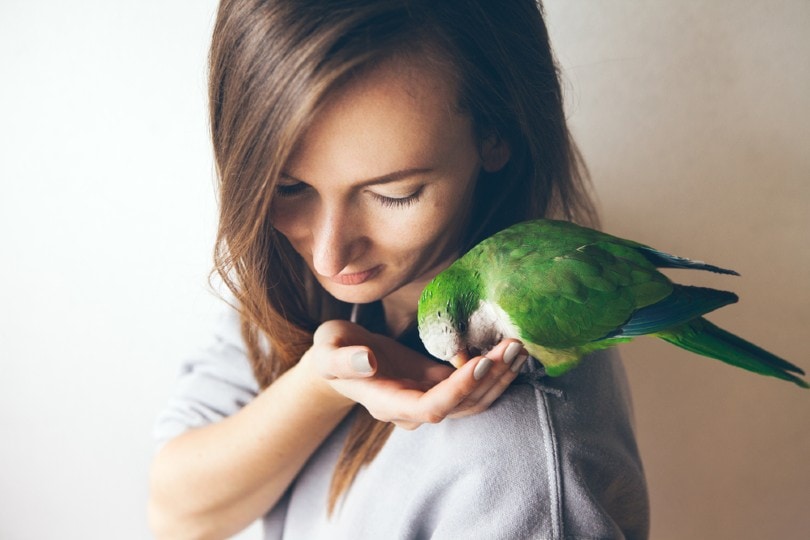
Parakeets are one of the most common types of pet birds. Many owners have questions about the lifespan of a parakeet. Some are wondering how old do they get?
Parakeets make excellent pets, and many owners will want to know what is typical for these birds in terms of life expectancy. The average lifespan for a parakeet ranges from 10–20 years with an upper limit on their lifespan (max) at up to 40 years. There are plenty of other factors that can affect this, and it’s good information for anyone considering adopting one or more parakeets.
They often live close to their owners, and the bond between pet and owner is solid; it isn’t unusual for parakeets to become part of a family. If you’re like most people, this means that you’ll want to make sure your pet is safe, healthy, and living a long life. Read on to find out what influences the parakeet’s lifespan.
What Are Parakeets?

Parakeets are small, colorful birds that are in the same family as macaws and cockatoos. These widespread pets originated in Australia. They’re pretty little in terms of size, but their personality and charm make them very fun to have around. The only downside is that they can be loud at times; this might not work well if your household has someone sensitive to noise or light sleepers!
Why Do Some Parakeets Live Longer Than Others?
1. Species
Lifespan tends to vary among the different types of parakeets. The average life expectancy for a budgie (the most common type) is around 15 years, while an English or American parakeet is about 20 years. Some species, like the short-tailed parakeet, can live up to 40 years.
2. Sex
As a general rule of thumb, females tend to live longer than males. This is true for parakeets, too: the average lifespan of a female is around 20 years while that of a male is between 12–15 years. This is one of the less influential factors, as both sexes are susceptible to an early death without adequate care.
3. Diet and Exercise
Parakeets are very active birds; they need plenty of exercise and stimulation to remain healthy. Providing them with a nice variety of toys and other items will ensure that they’re doing the right things to stay busy. Many experts recommend letting them out of their cage once or twice per day for playtime.
You’ll also want to make sure that they are eating nutritious, balanced food in sufficient quantities. Some owners feed their birds daily, while others opt for larger, less frequent portions. Whichever method you choose, you should feel your bird’s body; if it feels thin and bony, the bird is not getting enough food or exercise. If the body is chubby and soft, there might be too much of either going on!

4. Genetics
Just like with humans, genetics play a role in the lifespan of a parakeet. When adopting a parakeet, it’s best to ask the breeder about the parents’ lifespan. If you know, that information can be useful in determining whether your pet will live a long life. In general, it’s best to adopt from an owner who has taken good care of their birds and kept them well-fed and happy!
5. Mental Health
You should make sure your bird is in a space that feels comfortable and safe. While you’ll want to keep the parakeet out of high-traffic areas, it won’t do any good if you’re feeling stressed yourself; birds can pick up on this.
The same goes for people around the house: they’ll need to build up their relationship with the parakeet slowly over time. If you bring home a young, immature bird that doesn’t know how to interact with the people in your house, it could end up being very difficult for everyone.
If you have other pets, make sure that any aggressive behavior is dealt with before the parakeet comes home. Likewise, if you have younger children, it’s a good idea to make sure they know what can happen when they do things like try to pull feathers out or touch an animal without permission first.

6. Diseases and Illnesses
Illness can be a factor in shortening a parakeet’s lifespan. But when it comes to serious illness, some owners decide to put their pets down rather than keep them around in pain or distress. This can be especially difficult if the bird is otherwise healthy but has been diagnosed with something that cannot be treated effectively; owners don’t want to see their little buddy go through any more than it has to.
Final Thoughts
The lifespan of a parakeet can depend on a variety of factors, including its age and health. While many owners assume that all birds have the same lifespans, there are actually some differences. Some research suggests that wild-caught birds tend to live shorter lives than those bred in captivity. When you’re considering adopting a parakeet, make sure you research the different factors that can influence its lifespan. Having this information will help you know what to expect and how to position yourself for an even longer relationship with your feathered friend!
We have plenty of information on parakeets on our blog, so feel free to find the specific one you need and learn all there is to know about caring for them.
Featured Image Credit by Christine Bird, Shutterstock








